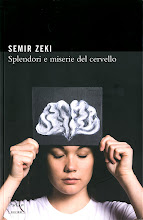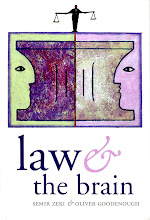Some time ago (April 28, 2008), I wrote a piece about the objectivity of subjective experiences. I now recall that, many years ago, Martin Bell – then a correspondent for the BBC in the United States – reported on what he called Lee Marvin’s “Gas Tank” Theory of Love.
A lady he had been living with had brought a court case against him, demanding half of his earnings for the period they had been living together. But how much did he love her? Lee Marvin replied that if measuring love was like a fuel gauge, his feelings for her never got above “half a tank”.
Now this seemed funny and improbable at the time. But in fact measuring a full brain “gas tank of love” is not quite so improbable after all.
Romantic love correlates with activity in a specific set of areas. Brain activity that correlates with subjective mental states such as hate, or experience of beauty, or expectation of reward, seems to be proportional to the intensity of the declared subjective mental state, at least in some brain areas.
For example, activity in the putamen, a subcortical brain station, is propotional to the declared intensity of hate experienced by the subject.
Now suppose that we are able to calculate the exact number of cells in the putamen and determine the ones whose responses correlate with the experience of hate and suppose further that we have a precise figure for their electrical discharge rates per second. If we had this information, we should be able to tell whether, at any given moment, the hate is of the “full gas tank” or “half gas tank” variety. And so too with love.
This is of course taking a very simple approach. In practice, we would also need to have the same information for the other areas whose activity correlates with the experience of hate (or of love). And we would also have to calculate the responses of areas whose activity merely correlates with the experience of love or hate, without being related proportionately to the intensity of the experience.
This is all of course a long way off – some will wish ardently that is forever off. But it is worth recording that Lee Marvin was not being far from biology when he was trying to give a measure to the intensity of love that he felt. The gas tank analogy was, I believe, not a bad one after all.
Sunday, April 12, 2009
Subscribe to:
Post Comments (Atom)









 Contact us
Contact us
No comments:
Post a Comment